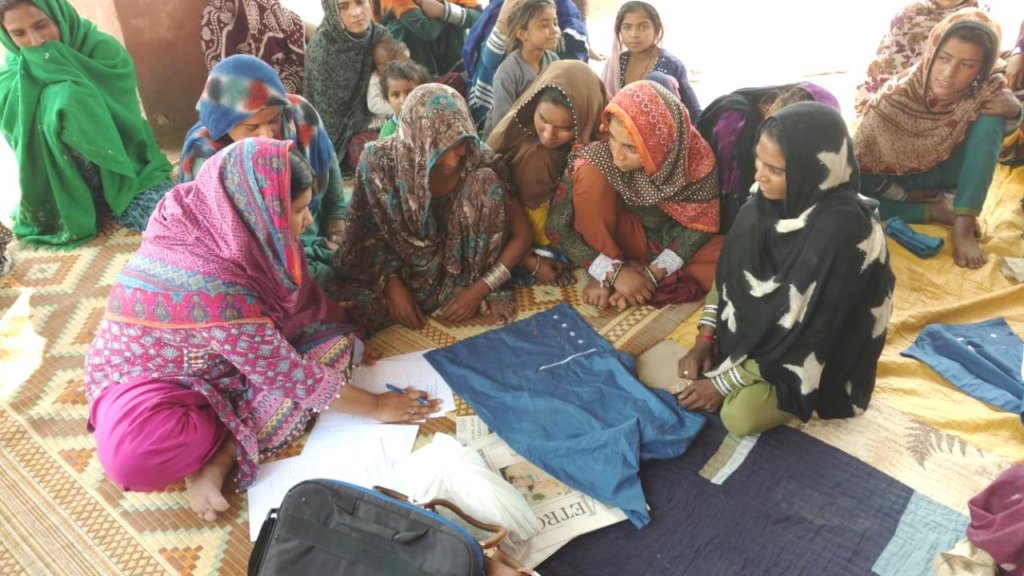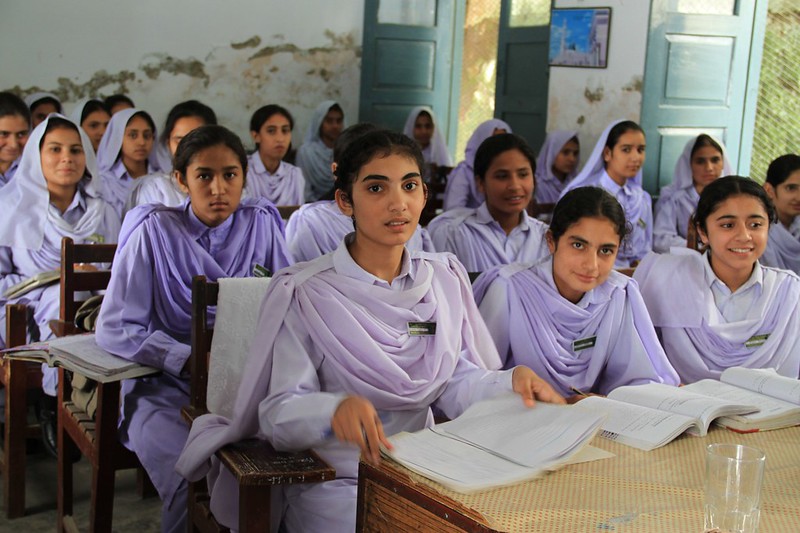
Empowering Women Through Vocational Training Centers in Pakistan
The Role of Human Rights Welfare Society Pakistan District in Empowering Women Through Vocational Training Centers in Pakistan:
- Awareness and Advocacy: The Human Rights Welfare Society plays a vital role in creating awareness about the importance of women’s empowerment through vocational training centers. They advocate for the implementation of policies and programs that support women’s access to vocational training and promote gender equality.
- Capacity Building: The society may collaborate with vocational training centers to enhance their capacity and effectiveness in empowering women. They can provide resources, training, and support to the centers to ensure they have the necessary tools and knowledge to deliver quality training programs to women.
- Outreach and Mobilization: The society can engage in outreach activities to identify women who could benefit from vocational training programs. They can organize awareness campaigns, workshops, and seminars to encourage women to enroll in vocational training centers. Additionally, they can mobilize communities to support women’s participation in these programs.
- Support Services: The society can provide support services to women enrolled in vocational training programs. These services may include counseling, mentorship, and guidance to help women overcome any challenges they face during their training and enhance their overall experience.
- Monitoring and Evaluation: The society plays a crucial role in monitoring and evaluating the quality and impact of vocational training centers. They can ensure that these centers are providing relevant and effective training to women and address any gaps or shortcomings in the programs.
- Partnership and Collaboration: The Human Rights Welfare Society can collaborate with other organizations, government departments, and vocational training centers to create a more comprehensive and holistic approach to women’s empowerment. By fostering partnerships, they can leverage resources, pool expertise, and advocate for policy changes that enhance women’s access to vocational training.

7. Policy Advocacy: The society can advocate for the development of policies that support and promote women’s access to vocational training centers. They can lobby for gender-responsive policies and programs that address the specific needs and challenges faced by women in accessing and benefiting from vocational training.
8. Skill Development: The society can work closely with vocational training centers to ensure that the skills being taught are relevant and marketable. They can identify emerging industries and trends and collaborate with the centers to develop training programs that align with these demands, increasing women’s chances of employment and economic empowerment.
9. Entrepreneurship Support: The society can provide entrepreneurship support and guidance to women who have completed vocational training programs. They can offer mentorship, business development resources, and access to microfinance to empower women to start their own businesses and become self-employed.
10. Networking Opportunities: The society can organize networking events and platforms for women who have completed vocational training programs to connect with potential employers, industry professionals, and other supportive networks. These networking opportunities can provide women with exposure, access to job opportunities, and the chance to showcase their skills and talents.

11. Financial Support: The society can establish scholarship or grant programs to provide financial assistance to women who may not be able to afford vocational training. This will help reduce the financial barriers that often prevent women from accessing these programs.
12. Awareness Campaigns: The society can raise awareness about the importance of vocational training for women through media campaigns, workshops, and community events. This will help challenge societal stereotypes and encourage more women to consider vocational education as a viable option for their career development.
13. Parental and Community Engagement: The society can engage parents and communities in promoting and supporting women’s access to vocational training. This can involve organizing information sessions for parents to understand the benefits and opportunities available through vocational education, as well as encouraging community support in breaking down gender barriers.
14. Gender Sensitization Training: The society can conduct gender sensitization training for vocational training center staff and instructors, ensuring an inclusive learning environment that encourages equal participation and opportunities for women.

15. Counseling and Guidance: The society can provide counseling and career guidance services to women interested in vocational training. This support can help them make informed decisions about their career paths, as well as provide guidance throughout their training and job search process.
16. Mentoring Programs: The society can establish mentoring programs where experienced professionals can mentor women who are undergoing vocational training. This mentoring support can provide guidance, advice, and inspiration to women, as well as open doors to networking and employment opportunities.
17. Research and Data Collection: The society can conduct research and collect data on women’s participation and success rates in vocational training programs. This data can be used to identify gaps, challenges, and success stories, informing future initiatives and policy recommendations.
18. Advocacy for Safe and Inclusive Learning Environments: The society can advocate for vocational training centers to provide safe and inclusive learning environments for women. This can involve campaigning for gender-segregated accommodations, women-only classes, and effective measures to prevent and address gender-based violence and harassment.
19. Collaboration with Employers: The society can collaborate with employers to create job placement opportunities for women who have completed vocational training programs. This can involve advocating for gender-inclusive hiring practices and promoting the benefits of hiring women with vocational skills.

20. Follow-up Support: The society can provide ongoing support and follow-up services to women who have completed vocational training programs. This can involve job placement assistance, post-employment counseling, and monitoring their progress and success in the workforce.
All Categories
- Agricultural Methods
- Agriculture and Women Small Farmers Rights Awareness
- Climate Change
- Disable and Human Rights
- Disable Jobs
- Donation
- Education
- Health Issues
- Organic Foods
- Organic Vegetables
- Orphans Children
- Plastic production and disposal
- Services
- Sinking in Scarcity
- Success Stories
- Uncategorized
- Waste Management
- Women Rights
- Youth Empowerment




